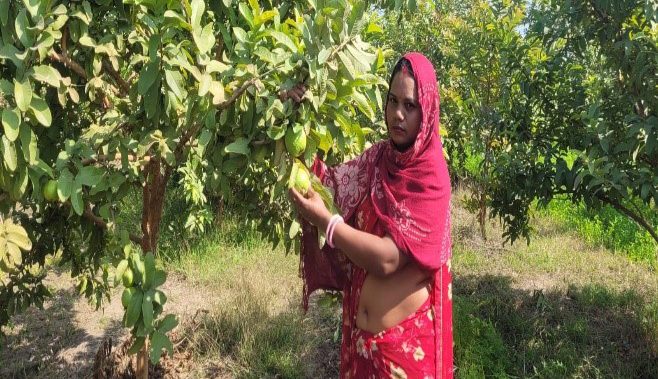The National Bank for Agriculture and Rural Development (NABARD) has played a pivotal role in transforming rural India, particularly through its Tribal Development Fund (TDF). This initiative has been instrumental in uplifting marginalized tribal communities in Rajasthan by promoting sustainable agriculture, alternative livelihoods, and skill development, thereby improving the socio-economic conditions of thousands of families.
One of the key components of NABARD’s efforts is the WADI initiative, which focuses on sustainable agroforestry. “WADI,” meaning “small orchard” in Gujarati, integrates fruit-bearing trees with intercropping practices to create an environmentally sustainable and economically viable livelihood. This approach provides tribal families with a steady income stream, while also ensuring environmental conservation.
Since the inception of the Tribal Development Programmes in 2005-2006, NABARD has worked to create sustainable livelihood opportunities for tribal families in Rajasthan. These programmes focus on orchard-based farming systems, health care, sanitation, women’s empowerment, and skill development. As of November 30, 2024, NABARD has sanctioned 64 projects in the state, with a total funding of Rs 200.90 crore, of which Rs 156.11 crore has been disbursed.
Over 51,885 tribal families across 15 districts, including Udaipur, Banswara, and Baran, have benefitted from these initiatives. The projects include the development of small orchards with fruit trees like mango, guava, lemon, and aonla, as well as intercropping and border plantations. Additionally, about 2,500 landless families have been provided alternative livelihoods such as goat rearing, dairy farming, and off-farm activities like pickle-making.
A remarkable success story from the TDF projects is that of Siya Bai Sahariya, a tribal woman from Baran district. With support from NABARD, she developed an orchard and adopted climate-resilient farming practices.
Her income grew significantly, from Rs 45,000 in 2018-19 to Rs 2,50,000 in 2023-24. In addition to selling fruits and vegetables, Siya Bai earned from her Kirana shop and climate-resilient agriculture, and became actively involved in government social security schemes, improving her financial stability.
Through innovative methods like drip irrigation and vermi-composting, NABARD’s projects have improved agricultural productivity and promoted organic farming. The creation of Farmer Producer Organizations (FPOs) has enabled tribal farmers to collectively market their produce, ensuring better prices. NABARD continues to drive inclusive, sustainable development, transforming the lives of tribal communities in Rajasthan and beyond.





